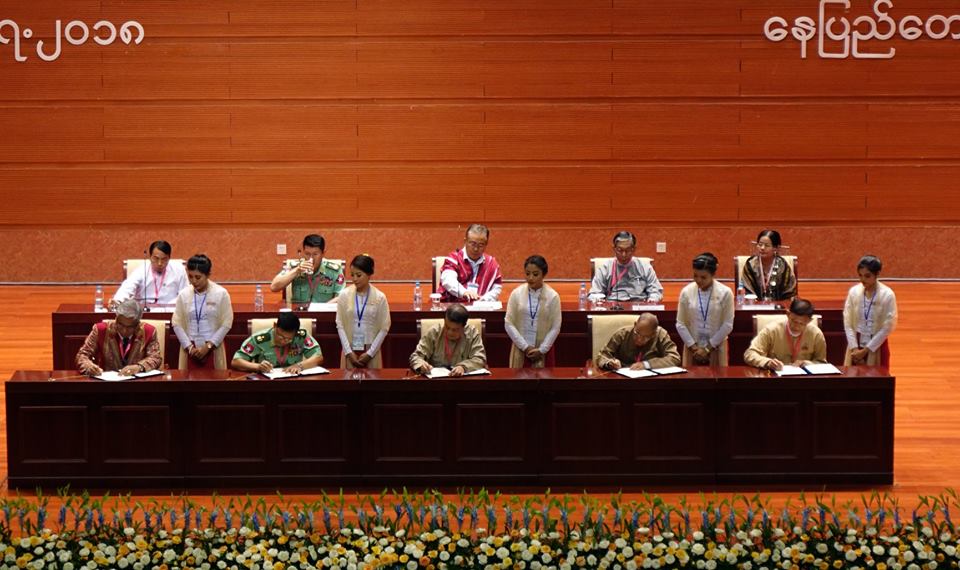The latest iteration of the “21st Century Panglong Conference” concluded on Monday with participants signing 14 points of agreement as the high-level peace confab came to a close in the capital Naypyidaw.
The 14 points — in sectors related to politics, economics, social matters, and land/environmental issues — will be added onto the Union Accord first inked at the last round of Panglong negotiations, bringing to 51 the number of points agreed in a document that is intended to help bring an end to the world’s longest-running civil war.
Ever a dutiful booster of a peace process that critics say has stalled out, state media has portrayed the six-day conference as a resounding success. The event was not without its hiccups, however, including some attendees taking issue with a speech given by Burma’s commander-in-chief, Senior-General Min Aung Hlaing, on the opening day of the conference.
And there is the fact that, as with previous iterations, looming large over proceedings is the absence of any discernible abatement in clashes between Burma Army (Tatmadaw) troops and several ethnic armed groups since the current government rolled out its “Panglong” peace initiative with an initial conference in 2016.
Fighting has continued, concentrated in the country’s northeast. Just within the past week, clashes were reported between the Tatmadaw and two signatories to the Nationwide Ceasefire Agreement, the Restoration Council of Shan State and the Karen National Union. The NCA has been signed by 10 non-state armed groups — eight under the previous government, in October 2015 — and underpins the Panglong peace talks.
There are plans afoot to hold another Panglong conference later this year, and two in 2019, though organisers have struggled to hit previous targets on the peace summitry calendar.
With the 51 points of agreement inked to date described as “basic principles,” much of the heavy lifting for peace negotiators remains, including tackling thorny issues such as constitutional reform, resource-sharing and the fate of the rank-and-file soldiers of the country’s numerous ethnic armed groups.
[related]
State Counsellor Aung San Suu Kyi has said the peace process is her highest priority as de facto leader of the country, and in remarks on Monday she acknowledged that security sector talks would be among the trickiest to come.
“We found that with some points at the conference agreement could be reached, but some could not. All groups participating in the session have different histories and dreams. There are big challenges in this process that require patience and will take time to achieve agreement,” Suu Kyi said.
“To reach agreement on the security sector is important in the peace-making process because it is essential to become a perfect Union peace agreement,” she added. “To achieve that situation, we need to try by boldly reconsidering our political framework, structure and design.”



